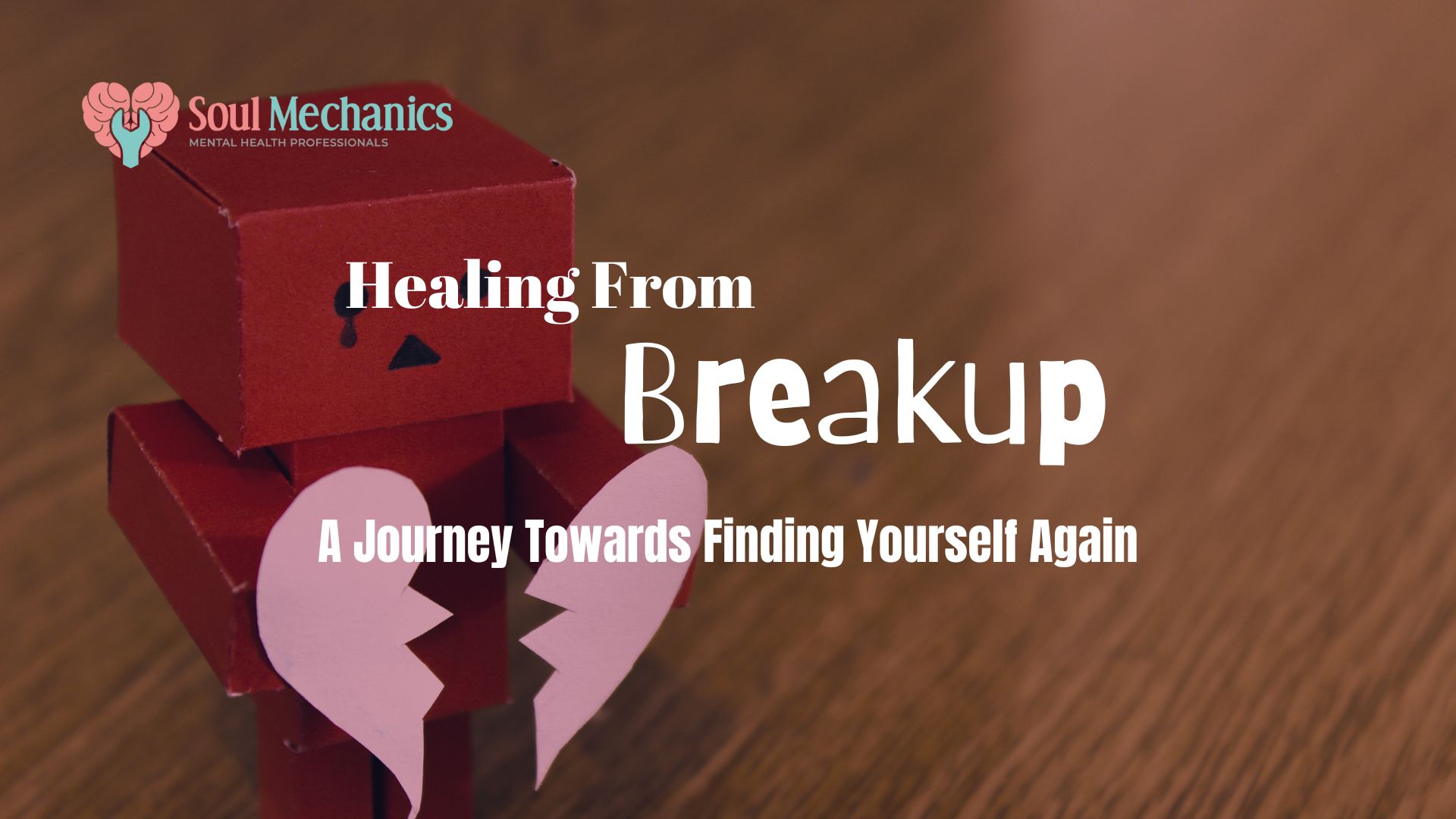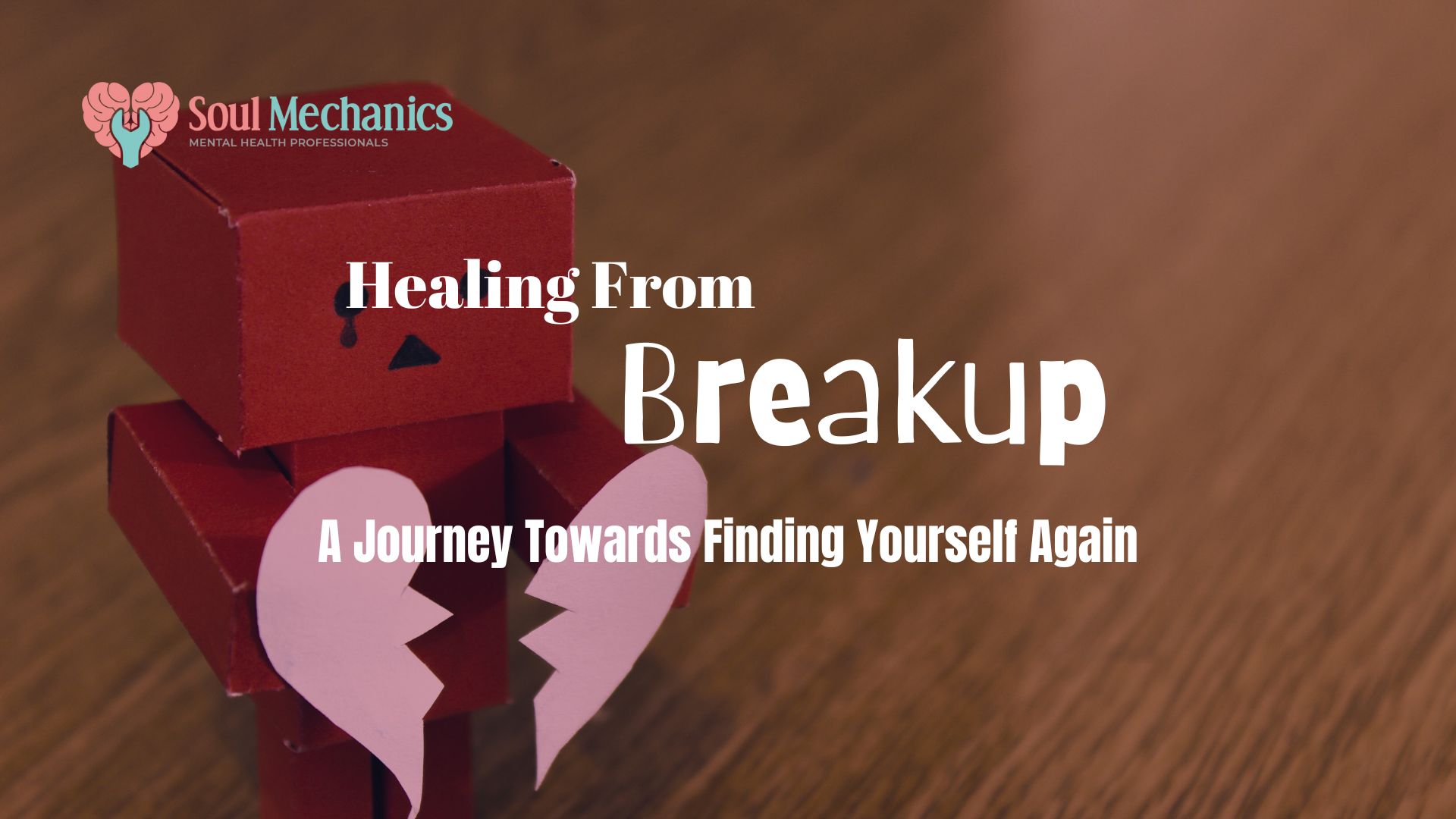
Understanding Heartbreak
Definition of Heartbreak
Heartbreak is often described as the emotional suffering experienced when an intimate relationship ends, whether through a breakup, loss, or betrayal. It encompasses feelings of profound sadness, grief, and sometimes anger. Think of it as a deep ache that resonates not only in the heart but also in the mind and body, often leading to a sense of emptiness.
Effects of Heartbreak on Mental Health
The effects of heartbreak can be far-reaching and may affect mental health significantly. Individuals often experience:
- Depression: Lingering sadness that seems insurmountable.
- Anxiety: Feelings of unease about the future.
- Low Self-Esteem: Doubting one’s worth after a relationship ends.
For instance, a friend shared how her heartbreak made her question her value, while also highlighting the emotional healing journey that followed.

The Need for Self-Rediscovery
Importance of Self-Reflection
After experiencing heartbreak, self-reflection becomes essential. It’s a chance to pause and examine one’s thoughts, feelings, and actions. This introspection can uncover:
- What worked in the relationship and what didn’t
- Personal habits that may need to change
- Values that might have been overlooked
For example, a friend took time to journal her emotions, which led her to realize how much she valued independence, reshaping her future relationships.
Embracing Change for Personal Growth
Heartbreak often serves as a catalyst for change, pushing individuals to embrace personal growth. By stepping outside their comfort zones, they can discover new opportunities and strengths. This change can manifest in various ways, such as:
- Trying new hobbies
- Meeting new people
- Pursuing education or career advancements
Through embracing change, people can transform their heartbreak into a powerful tool for self-improvement.

Steps to Rediscover Yourself After Heartbreak
Evaluating Priorities and Values
Once the dust of heartbreak settles, it’s crucial to take a step back and evaluate what truly matters. This might involve asking yourself questions such as:
- What do I value in life?
- What do I want from future relationships?
- Am I prioritizing my well-being?
A friend once revisited her priorities and realized that career advancement had taken a backseat during her relationship, prompting her to focus on personal goals.
Discovering New Passions and Hobbies
Rediscovering oneself often involves embracing new passions and hobbies. Engaging in activities can be a refreshing distraction and a way to meet new people. Consider exploring:
- Art classes
- Outdoor activities like hiking
- Joining a book club
For instance, after her breakup, a friend took up painting, finding both joy and a new community, enriching her life beyond her past relationship.
Building Self-Confidence and Self-Love
As individuals embark on this journey, building self-confidence and self-love is paramount. Simple practices such as:
- Positive affirmations
- Setting achievable goals
- Regular self-care routines
can make a significant difference. One individual shared how journaling about her strengths transformed her self-view, ultimately fostering a renewed sense of confidence essential for moving forward.

Overcoming Challenges in the Journey of Self-Rediscovery
Dealing with Emotional Baggage
Throughout the journey of self-rediscovery, confronting emotional baggage is often one of the toughest challenges. This can include unresolved feelings from past relationships such as hurt, anger, or regret. To tackle this baggage, individuals can:
- Acknowledge feelings: Accepting emotions as valid.
- Communicate: Talk to friends, or consider journaling to express thoughts.
- Seek closure: Write a letter to an ex, even if it’s never sent.
A friend found that identifying her emotional triggers allowed her to heal and move forward.
Coping with Loneliness and Isolation
Coping with loneliness and isolation is another hurdle many face. After a breakup, it’s natural to feel alone. Combatting this can involve:
- Reaching out: Connecting with friends and family can help fill the void.
- Joining groups: Finding shared interests can lead to new friendships.
- Engaging in community activities: Volunteering can provide a sense of purpose.
Personally, a friend joined a local hiking club, alleviating her feelings of isolation while building a supportive network.

Seeking Support and Guidance
Importance of Therapy and Counseling
As individuals journey through self-rediscovery, seeking support is crucial, particularly through therapy and counseling. Professional guidance can provide a safe space to navigate emotions and build coping strategies. Some benefits include:
- Understanding feelings: A therapist helps individuals unpack complex emotions.
- Challenging negative thoughts: Cognitive-behavioral techniques can shift perspectives.
- Setting goals: Counselors assist in planning actionable steps towards healing.
For instance, a friend found that talking to a professional led to uncovering deep-seated patterns she had not recognized before, significantly aiding her recovery.
Building Strong Relationships with Friends and Family
In tandem with professional help, cultivating strong relationships with friends and family is essential. These connections provide a support system and a sense of belonging. Consider:
- Regular check-ins: Simple texts or calls can keep relationships vibrant.
- Shared activities: Plan outings or game nights to strengthen bonds.
- Open communication: Discuss feelings and lend support to one another.
One individual rebuilt his circle by inviting old friends for weekend gatherings, ultimately fostering a supportive environment that helped him navigate his journey more effectively.

Embracing a Renewed Self
Acceptance and Forgiveness
As the journey of self-rediscovery progresses, embracing a renewed self often necessitates acceptance and forgiveness. This process involves acknowledging past experiences without judgment and releasing any grudges. Key steps include:
- Recognizing emotions: Allowing oneself to feel hurt and disappointment.
- Learning from experiences: Reflecting on lessons learned.
- Practicing forgiveness: This can be directed both towards others and oneself.
For example, a friend found peace by writing a forgiveness letter to her ex, which liberated her from lingering resentment, marking a significant step in her healing journey.
Moving Forward with Positivity and Resilience
With acceptance comes the opportunity to move forward with positivity and resilience. Embracing life anew means setting optimistic goals and fostering a can-do attitude. Consider:
- Daily affirmations: Reinforcing self-belief and positivity each day.
- Setting future goals: Creating short and long-term objectives can instill purpose.
- Practicing gratitude: Regularly noting things to be grateful for can shift perspective.
One individual inspired by his newfound clarity started a blog to share his story, not only helping himself heal but also inspiring others to embrace their journeys with resilience.
